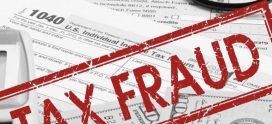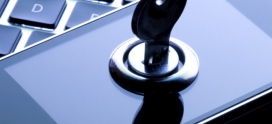Social Media Security—Are Hackers Able to Steal Your Information?
Over 75% of US adults use some sort of social media—it’s a great way to keep in touch with friends, family, and even stay up-to-date on breaking news and the latest celebrity gossip. Many of us have accounts across several platforms, such as Facebook, Twitter, and Instagram, making it that much easier for us to keep in contact with people across the globe in a variety of ways.
With all of these connections, however, it is not only easier for us to see what our loved ones are up to, but it also centralizes all of our data for hackers, making it that much easier for them to steal our personal information to use for their own malicious gain. These cyber criminals are able to hack into individuals’ or business’ accounts and some have even been able to hit the majority of users on a single platform at once. With hackers so focused on attacking any and every one that they possibly can, it is important to educate yourself on the types of threats that these cyber criminals pose as well as to learn how to better protect your accounts against potential attack.
How They Do It—With the recent data breaches of LinkedIn, Tumblr, and the biggest of all (oddly enough) Myspace—consisting of 427,484,128 passwords and 360,213,024 email addresses from both active and dormant accounts (making it the biggest social media data breach to date), social media security has become a hot topic and the question at the top of everyone’s minds is, “Am I next?” While hackers seem to be fairly random in whom they target, there are ways to strengthen your own personal security for your online social networking accounts. Not only should you be prepared against massive platform data breaches, but targeted attacks on individual accounts as well.
While these data breaches are able to target millions of people at once, the most common social media cyber-security crimes are directed attacks on individuals, and are primarily done via sophisticated online phishing. Hackers hack into existing accounts or create secondary accounts of individuals and pretend to be them—going as far as to steal pictures, birthdays, and ‘liking’ the same pages the victim likes. Then, these criminals add friends and family of the victim, posing as him or her and then making odd requests such as needing cash immediately in order to help them out of a tight spot. It is the modern version of the Nigerian prince scheme, only more people fall for it because it appears to be an actual loved one in trouble. With hackers becoming more creative and shifty, it is growing to be more and more challenging to protect against these threats, and all the more important to protect your social media accounts.
Ways to Protect Against Attack—I originally titled this article “Are Hackers Trying to Steal Your Information?”—but the answer to that is always ‘yes.’ Hackers are consistently looking for ways to steal and corrupt as much information as they possibly can. The proper question is, “Is it easy for them to do so?” While there is no silver bullet when it comes to cyber-security, especially regarding social media, here are a few ways to make it harder for these cyber criminals to get your personal information:
- Use different, stronger passwords—By making your passwords longer and more complex, as well as using a different password for every account you have, you can reduce your chances of being hacked significantly. Even if your information from one site was compromised, for example in a data breach, by having different passwords for your other social platforms, you reduce your risk of having more information exposed, which aids in your overall cyber-security. Facebook CEO, Mark Zuckerberg, had to learn this the hard way when his Pinterest and Twitter accounts were hacked after the LinkedIn breach provided hackers with his login information, including passwords, which were not only weak, and therefore easily hackable, but he used the same one for both sites. Thankfully he didn’t have the same password for his Facebook account, but it just goes to show you that no one is safe from attack if they use the same, easy-to-crack password for every social media site.
- Two-factor authentication—otherwise known as two-step verification, requires users to login not only by entering their password online, but a second, unique verification code sent via text. When there are multiple security steps necessary to sign on to social media, it is harder for these hackers to get to your valuable information. This has proven to be one of the most vital steps in protecting social media accounts; Facebook, Google, and Twitter are currently utilizing this technology, and hopefully more catch on soon (Since their data breach, LinkedIn has implemented this feature as well and encourages its users to take advantage of it).
- Do not add people you don’t know—While this may seem obvious to some, many people add ‘friends’ online all the time who they have never even heard of before. With people hacking into the accounts of people you actually know and pretending to be them in order to extort something out of you or another loved one already, why increase your chances of phishing and hacking by adding a complete stranger?
- Be wary of suspicious messages and posts—Many hackers utilize vulnerable accounts to hack into in order to send friends and family members messages either asking for money or some other odd request. If you receive a message like this from someone you know, contact them in a way other than social media to see if it is really them, especially if the message looks like something out of the ordinary.
- Don’t have sensitive information on your accounts—Most social media platforms give you the option to make certain information private, even from people you know and accept online as ‘friends’ and doing so can really help you strengthen your cyber-security; sensitive information such as your home address or cell phone number can be dangerous to have readily available on social media because it acts as an open door to finding other information about you that could potentially be used by cyber criminals to steal your identity.
There is no surefire way to guarantee your social media accounts won’t be hacked—hackers are working every day to find new ways to get your information. By taking multiple precautionary steps, however, you can make it harder for hackers to get to your information and the information of your loved ones.
—Hailey Carlson, Marketing Intern 6/13/2016



